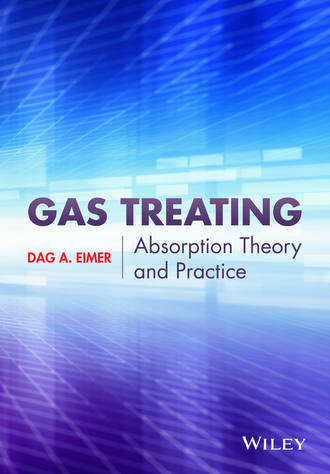
Полная версия
Gas Treating. Absorption Theory and Practice
Gas Treating: Absorption Theory and Practice provides an introduction to the treatment of natural gas, synthesis gas and flue gas, addressing why it is necessary and the challenges involved. The book concentrates in particular on the absorption–desorption process and mass transfer coupled with chemical reaction. Following a general introduction to gas treatment, the chemistry of CO2, H2S and amine systems is described, and selected topics from physical chemistry with relevance to gas treating are presented. Thereafter the absorption process is discussed in detail, column hardware is explained and the traditional mass transfer model mechanisms are presented together with mass transfer correlations. This is followed by the central point of the text in which mass transfer is combined with chemical reaction, highlighting the associated possibilities and problems. Experimental techniques, data analysis and modelling are covered, and the book concludes with a discussion on various process elements which are important in the absorption–desorption process, but are often neglected in its treatment. These include heat exchange, solution management, process flowsheet variations, choice of materials and degradation of absorbents. The text is rounded off with an overview of the current state of research in this field and a discussion of real-world applications. This book is a practical introduction to gas treating for practicing process engineers and chemical engineers working on purification technologies and gas treatment, in particular, those working on CO2 abatement processes, as well as post-graduate students in process engineering, chemical engineering and chemistry.

